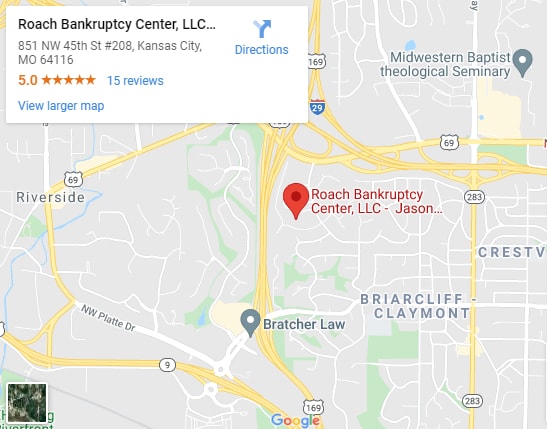Bankruptcy Means Test

When you’re deep in debt and can’t seem to pay off all of your balance, there is the option for wage garnishment, which results in employers holding off your wages to pay for your debts such as child support. This isn’t the end all and be all, though. There are steps you can take in order to stop wage garnishment and one of those is filing bankruptcy.
We are familiar with Chapter 7 and Chapter 13 bankruptcies, along with their differences. Chapter 7 is the type of bankruptcy most people typically file for since it requires your income to be less than the state median. Even people with regular incomes can file for Chapter 7 bankruptcy as long as they meet the requirements.
However, there are still requirements to comply with for filing. This is where the bankruptcy means test comes in. A bankruptcy means test is done to determine whether an individual qualifies for chapter 7 bankruptcy to achieve debt relief. The bankruptcy means test takes plenty of factors into consideration such as family size, income, and amount of disposable income.
Bankruptcy means tests can be quite a new concept to most people. This is why enlisting the help of a Kansas City, MO bankruptcy attorney is necessary. A bankruptcy attorney can explain bankruptcy law to you and help you make the best decision for your situation.
What is the Bankruptcy Means Test?
The bankruptcy means test is a way of filtering who qualifies for a Chapter 7 bankruptcy. Taking into account various factors such as income and family size, the bankruptcy means test is done to determine whether or not there is still enough disposable income to pay off debts. Typically this test is done in order to restrict individuals filing for chapter 7 bankruptcy, especially those with a higher income. Most people who take the bankruptcy means test pass easily.
Facing Imminent Foreclosure?
We can help save your home! Even if time is running out, we’ll find a way. Find out how by speaking with our bankruptcy lawyer in Kansas City, Missouri today.
Call Us Today! (816) 454-5555
What is Chapter 7 bankruptcy?
Chapter 7 bankruptcy is the type of bankruptcy most individuals file for since it requires that one’s income is lower than the state median-a qualification that many fit into. Despite having basic qualifications, not everyone can qualify for it. If your income is higher than the state median with enough to pay off debts, you’d still qualify for a Chapter 7 bankruptcy but any higher and you’d be asked to file for Chapter 13 bankruptcy.
The whole process of Chapter 7 bankruptcy filing takes approximately four to six months and one trip to the courthouse. If you’re dealing with troubles involving Chapter 7 bankruptcy, it is best to consult with a seasoned Kansas City, MO bankruptcy lawyer to smoothen matters out and help you get a fresh start in life.
How Does Chapter 7 Bankruptcy Differ from Chapter 13?
Chapter 7 bankruptcy is filed by individuals whose income is lower than the state’s median income and focused more on liquidation. Bankruptcy Chapter 7 erases qualifying debts and gives debtors the option to file an automatic stay which stops creditors from continuous collection. Chapter 7 bankruptcy also doesn’t come with a repayment plan which is why it is preferred by individuals who don’t have a high income or possess few assets.

Chapter 13 bankruptcy is the optimal type to file if you have a high income and focuses more on reorganization. It can also be filed by individuals who don’t meet Chapter 7 qualifications but need debt relief, have nondischargeable debt such as child support, and have failed to settle house or car payments. Trustees don’t sell property in Chapter 13 bankruptcy, rather the debtor has to pay the equivalent amount.
Facing Imminent Foreclosure?
We can help save your home! Even if time is running out, we’ll find a way. Find out how by speaking with our bankruptcy lawyer in Kansas City, Missouri today.
Call Us Today! (816) 454-5555
How does bankruptcy means test work?
The bankruptcy means test to check whether you’re eligible for Chapter 7 or Chapter 13 bankruptcy is quite complicated and pricey. It comes in two parts that determine the existence of disposable income which can be used to pay off debts. A bankruptcy attorney’s responsibility is to fill out the form and submit it to the court together with your other documents.
The first step is to check whether your income is below the state median income and this can be done by gathering proof or documentation of income over the past six months. While six months is typically the range the test is based on, there can be adjustments based on factors such as sudden unemployment or employment.
Apart from income, you would also need to gather documentation of your expenses over the past six months. Allowable expenses include food, clothing, and medical costs. Anything other than that is considered disposable income which will then go to paying off debt. Allowable standards for local and national levels used by the IRS vary. National standards cover usual necessities while local standards involve car payments and housing, and other more expensive necessities.
Going through bankruptcy is a tough situation, which is why if you find yourself in this kind of scenario, it is best to enlist the help of a bankruptcy attorney. A bankruptcy attorney can help you sort out financial matters to pay off debt and get your life back on track.
What Happens If You Pass the Bankruptcy Means Test?
If you pass the bankruptcy means test, you are now considered eligible for filing Chapter 7 bankruptcy. Chapter 7 bankruptcy takes into account expenses for necessities including medical bills and groceries and whatever remains shall be used to pay off debts. The difference between Chapter 7 and Chapter 13 bankruptcy is that the latter is for higher income individuals, allowing them to get caught up on debts while still keeping their assets. Chapter 13 bankruptcy offers individuals a chance to restructure their debts and find a way to pay off outstanding balances that suits their situation.
I Failed the Bankruptcy Means Test. Now What?
If you failed the bankruptcy means test, on the other hand, there are no appeals to turn around the decision but it also doesn’t have to result in a Chapter 13 bankruptcy filing. If you failed the bankruptcy means test, you have the option to take it again after six months to see if your financial situation by that time will meet the standards for Chapter 7 bankruptcy.
Seek Legal Advice from a Bankruptcy Attorney
Are you seeking to take the bankruptcy means test in order to file for Chapter 7 bankruptcy? Are you attempting to file for bankruptcy? In this case, the smartest move would be to consult a bankruptcy attorney. Contact Roach Bankruptcy Center and get in touch with a bankruptcy lawyer to sort out your financial matters from filing bankruptcies to paying off debts. Bankruptcy is a complex situation that nobody should be handling on their own. Schedule an appointment with a Roach Bankruptcy Center bankruptcy attorney right this moment!
